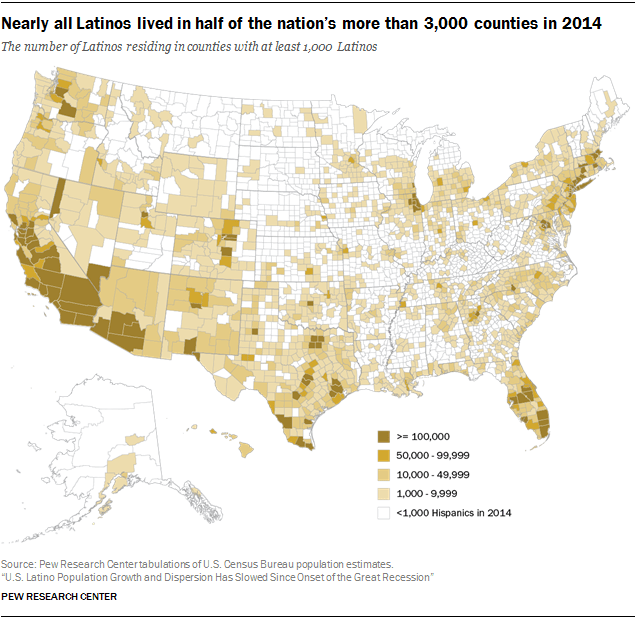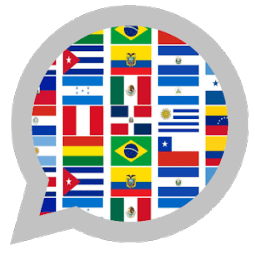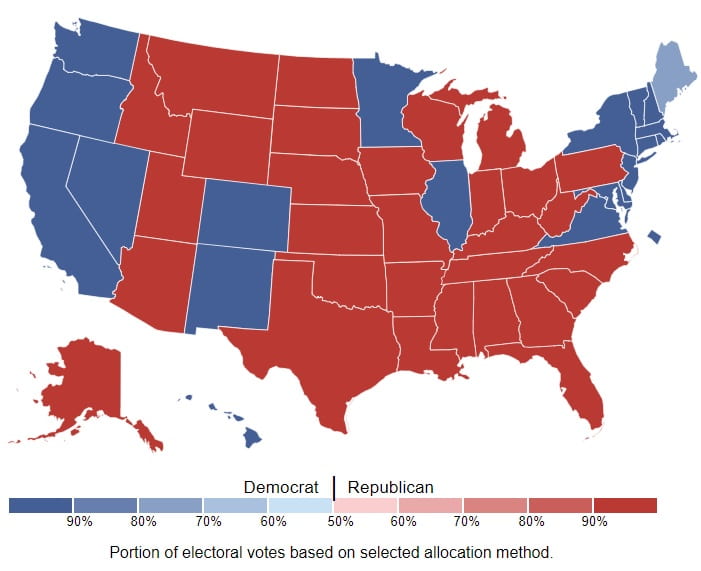WhatsApp is one of the world’s largest messaging platforms, with more than 2 billion users in 180 countries, 1 billion daily users, and 7.65 billion messages sent every day. There are 120 million WhatsApp users in Brazil and 77 million users in Mexico. WhatsApp is widely used for a few reasons–it connects friends and family through free international messaging/phone calls/video calls. It permits mass messaging among family members and is Android and iPhone friendly. However, WhatsApp’s exponential growth has resulted in unprecedented large amounts of misinformation among Latinxs in the United States due to the lack of information monitoring.
The Latinx community in the United States uses WhatsApp to contact friends and family from their respective countries. In 2018 44% of the U.S. immigrant population reported having Hispanic or Latinx cultural roots and in 2014 eight states (California, Texas, Florida, New York, Illinois, Arizona, New Jersey, and Colorado) had Latinx populations of more than 1 million. They tend to stick together by joining church groups, living in the same barrios (neighborhoods), and consume media in Spanish or Portuguese. News can be communicated by word-of-mouth, or more recently, via WhatsApp groups.
Recently, WhatsApp groups have been particularly buzzing around the 2020 U.S. election. In Florida, there have been massive amounts of misinformation delivered via WhatsApp. Florida is the largest swing state — a state that can be won by either the Republican or Democratic party–holding 29 out of the 270 electoral votes. For the first time in history, Floridian Latinxs comprise 17% of registered voters. However, Florida’s Latinx demographic is exceptionally different from the United States, with 32% of Cubans, 28% of Puerto Ricans, and 9% of Mexicans comprising the eligible Floridian Latinx voter population.
 Image 1: Map of the number Latinos residing in counties with at least 1,000 Latinos (Source: Pew Research Center)
Image 1: Map of the number Latinos residing in counties with at least 1,000 Latinos (Source: Pew Research Center)
Image: Map of portion of electoral votes based on selected allocation method (Source: 270towin.com)
The current polarized political climate has added to the tension of the 2020 presidential election and to measures taken to negatively affect voter participation. One of these tactics includes mass WhatsApp messaging of disinformation curated for Latinx voters. The misinformation ranges from videos that proclaim socialist ideation and character defamation from the Democratic presidential and vice-presidential nominees. Another layer of the problem is WhatsApp’s parent company, Facebook. Facebook recently released new guidelines to aid in the fight against misinformation, but there’s a growing disparity between which type of “fake news” gets flagged first. According to Jacob Licona, a researcher at Equis Lab, Spanish content doesn’t always get reported immediately, making Spanish-content a potential super spreader of misinformation.
However, algorithms are the bigger issue at hand and the inherent influence in our daily lives. Simple algorithms on devices impact our user experience through the software programs we use, such as word predictions on our phones or routes determined by Google maps. In the case of WhatsApp users, algorithms are applied in conjunction with large amounts of personal data such as your name, phone number, email address, contact list with additional personalized information such as connecting it to individual Facebook accounts or adding a profile picture. A common misconception is that computers create algorithms, but in reality, algorithms are created by humans, humans with implicit biases and their intentions. The mixture of large amounts of personal data, billions of users, and an increasing misinformation pool can lead to devastating impacts for WhatsApp users. Intentional or not, I argue that there is a flaw in the algorithm that allows for misinformation to spread more frequently, specifically among Latinx Americans in the United States. Disinformation is always a threat to our democracy, but the stakes are even higher because of the impending presidential election.
With all of these factors, the Floridian Latinx vote is especially vulnerable to false information while simultaneously holding some of the most important votes for the upcoming election. To fight against fake news, WhatsApp released new features to prevent messages from being forwarded more than five times to only one person instead of a group chat, which halted “highly forwarded messages” from virality by 70%. WhatsApp supports Poynter’s Institute FactChat, an alliance between credible English and Spanish news media outlets to help stop the spread of misinformation to Spanish-speaking listeners. FactChat bots are now implemented in WhatsApp, allowing users to double-check information in messages in real-time.
It’s time for our generation of Latinx Americans to have conversations with our families around WhatsApp’s misinformation. Although the chisme (gossip) can be fun in the group chats, it’s how misinformation can spread uncontrollably. It’s important to remind our families of a few quick prompts, as suggested via WhatsApp:
-
- Pay attention when a message is “forwarded.”
- Review media, such as photos and videos, carefully- somebody may have altered it.
- Be aware of hoax messages– indicators often include spelling mistakes.
- Question individual biases.
- Report people and groups who consistently spread fake news- it could be a robot.
- Verify with other sources.
Regardless of which side of the political spectrum your family members are on, it is essential that everyone has access to fact-checked, unbiased information to make informed decisions. The presidential election will significantly impact Americans’ lives for the next four years (if not for generations), so it is even more critical to have conversations about misinformation because the stakes are so high. Using the steps above can consequently alter which information is accessible for our elders and inspire more civic engagement and a deeper understanding of American politics for Latinxs.
Cover Image: App Annie

